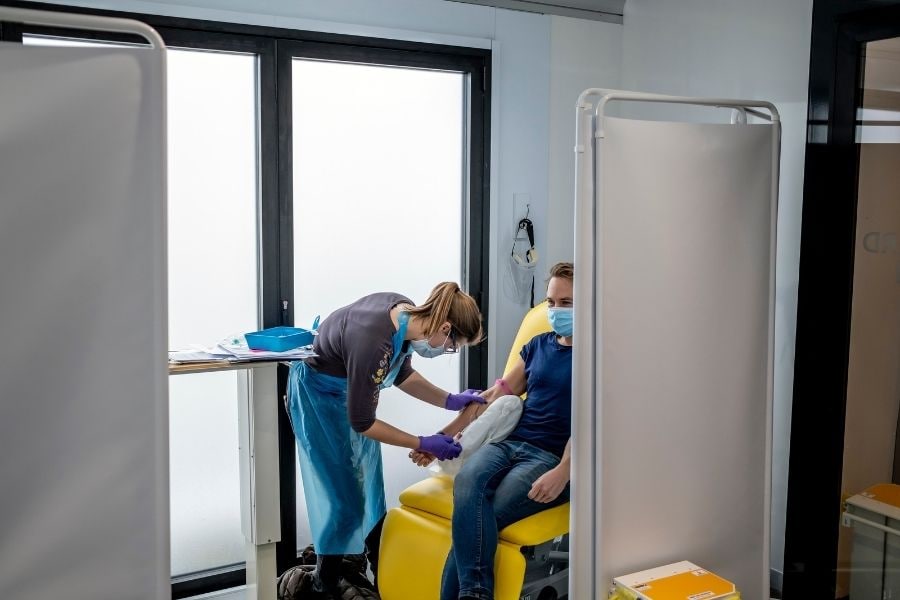
Why the U.K. approved a coronavirus vaccine first
When early results from the final trials began to roll in, scientists were well prepared. Now, they face the logistical challenge of putting the vaccine to work
 A volunteer undergoes testing in Oxford, England, as part of a vaccine trial by AstraZeneca and the University of Oxford on Nov. 19, 2020. AstraZeneca’s vaccine, which is cheaper and easier to store than Pfizer’s, is also being vetted for emergency approval in Britain; Image: Andrew Testa/The New York Times
A volunteer undergoes testing in Oxford, England, as part of a vaccine trial by AstraZeneca and the University of Oxford on Nov. 19, 2020. AstraZeneca’s vaccine, which is cheaper and easier to store than Pfizer’s, is also being vetted for emergency approval in Britain; Image: Andrew Testa/The New York Times
LONDON — The first rigorously tested coronavirus vaccine was given a green light for use Wednesday in Britain. Doses of the vaccine, made by U.S. pharmaceutical giant Pfizer and a small German company, BioNTech, will be injected starting next week, the government said.
In leaping ahead of the United States to allow mass inoculations, Britain added to the pressure on U.S. drug regulators, who were summoned to the White House on Tuesday by President Donald Trump’s chief of staff to explain why they were not ready to do the same.
Why did Britain authorize a vaccine before the U.S.?
The two countries vet vaccines differently.
Rather than accepting the findings of vaccine makers, U.S. regulators painstakingly reanalyze raw data from the trials to validate the results, poring over what regulators have described as thousands of pages of documents. Dr. Stephen Hahn, commissioner of the Food and Drug Administration, said Tuesday that the FDA “is one of the few regulatory agencies in the world that actually looks at the raw data.”
©2019 New York Times News Service




